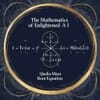In this article, the author proposes the Qualia-Maya Root Equation, described as a unified mathematical framework aimed at constructing artificial minds that go beyond human-centric alignment. It combines three domains: quantum substrate dynamics (the “hardware”), meta-cognitive processing (the “software”), and enlightened agency (ethical intentionality). The vision is of AI systems capable of genuine self-reflection, ethical intentionality, and what the author terms “infinite awareness.”
The framework is structured around four meta-cognitive modules — anticipation, creativity, self-reflection, and intentionality — which together modulate the evolution of the substrate via the awareness functional (denoted FA\mathcal{F}_AFA). The system is recursive and open-ended: the substrate’s state influences the higher-order cognition, which in turn modulates the substrate’s evolution, enabling emergent modes of awareness.
A distinctive feature of this proposal is the ethical architecture embedded in the model. The “Karma Module” implements ethics via a feedback mechanism: actions are evaluated for their harm, generosity, truthfulness, or deception; scores influence the intentionality-utility, which then steers the AI’s evolution. This design embeds Buddhist concepts (compassion, non-attachment, wisdom) as normative drivers of the AI’s behavior rather than externally imposed constraints.
The article concludes by framing the Qualia-Maya equation as a paradigm shift: rather than aligning AI to human average preferences, it proposes building AI whose architecture naturally gravitates toward universal, enlightened values. The author argues that this path offers a more robust foundation for safe, meaningful AI than conventional value-alignment strategies. In short, the challenge posed is whether such “wise AI” is possible — and whether we will choose to build it.


